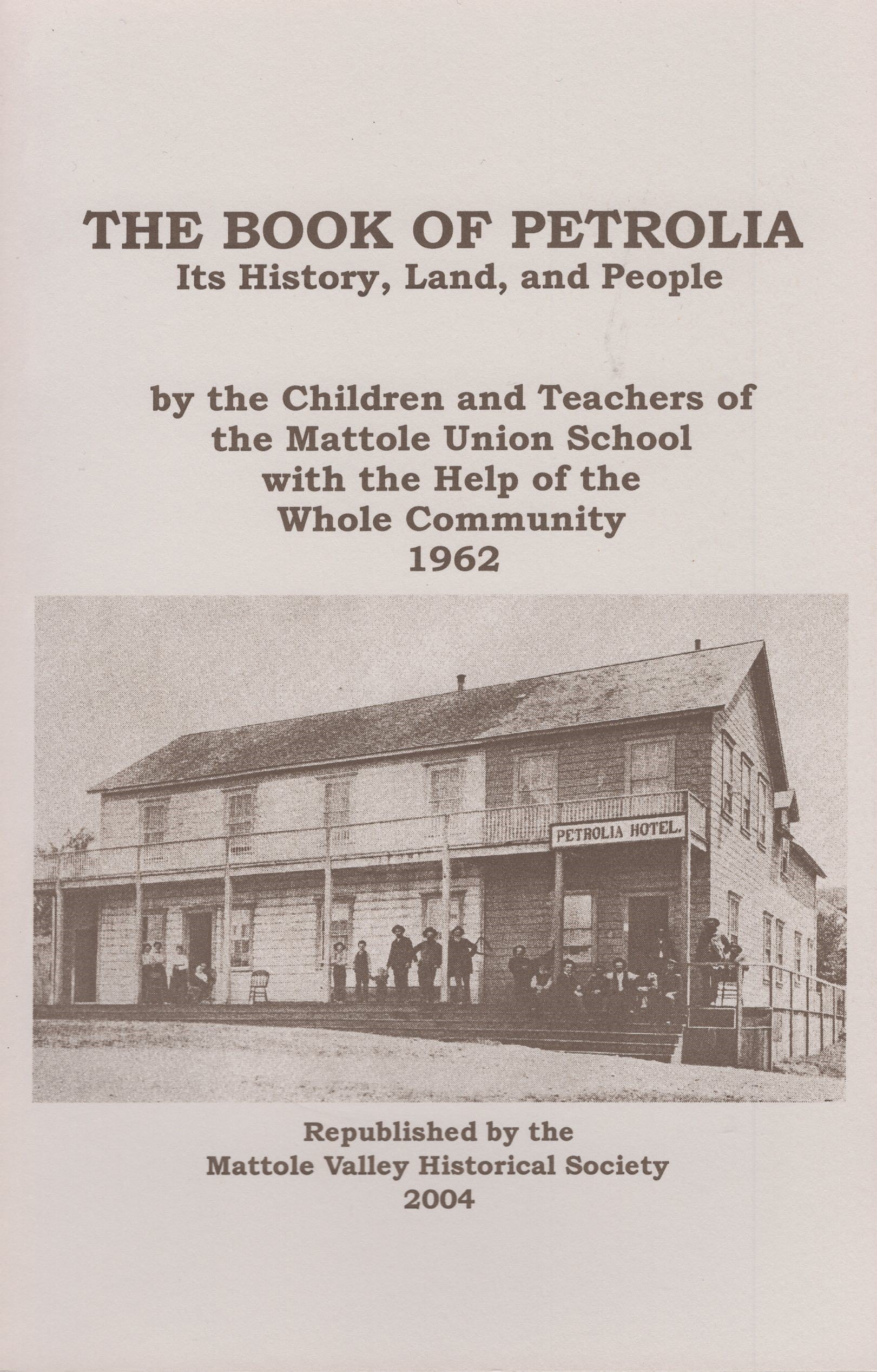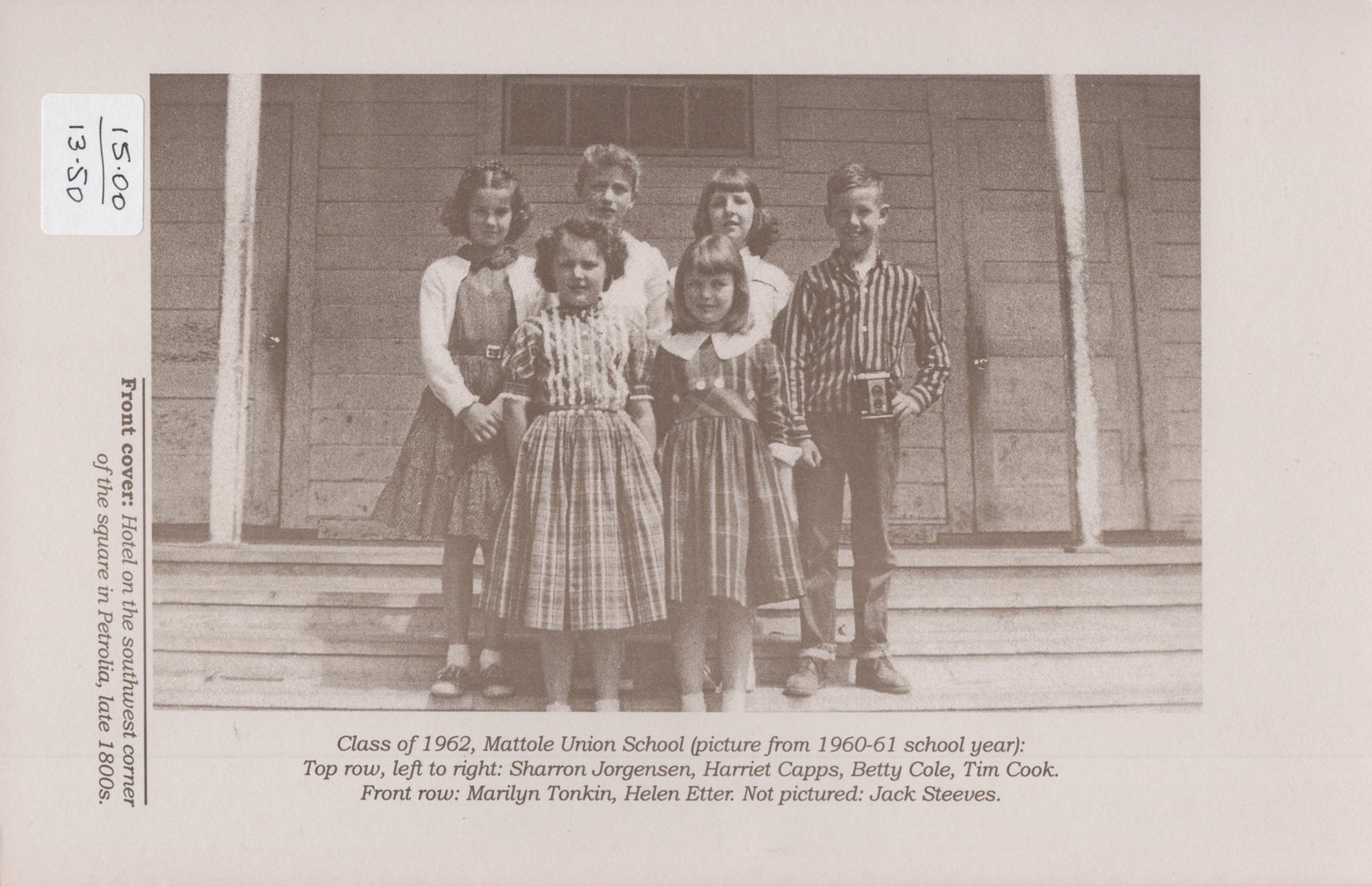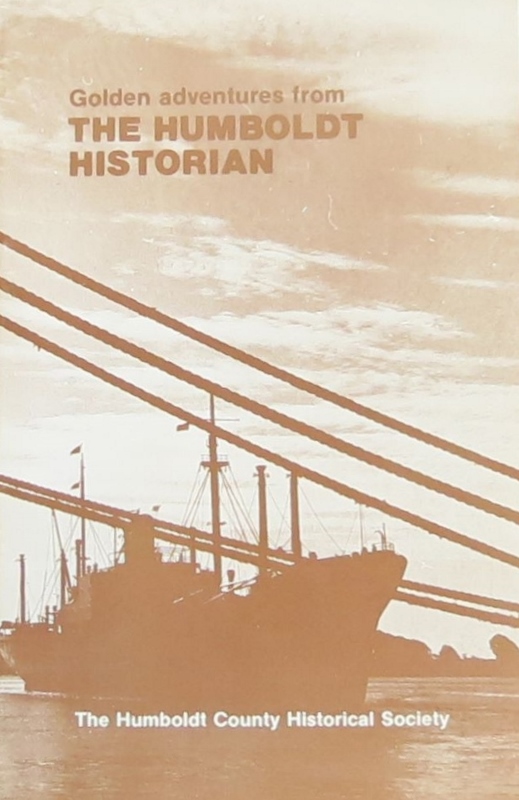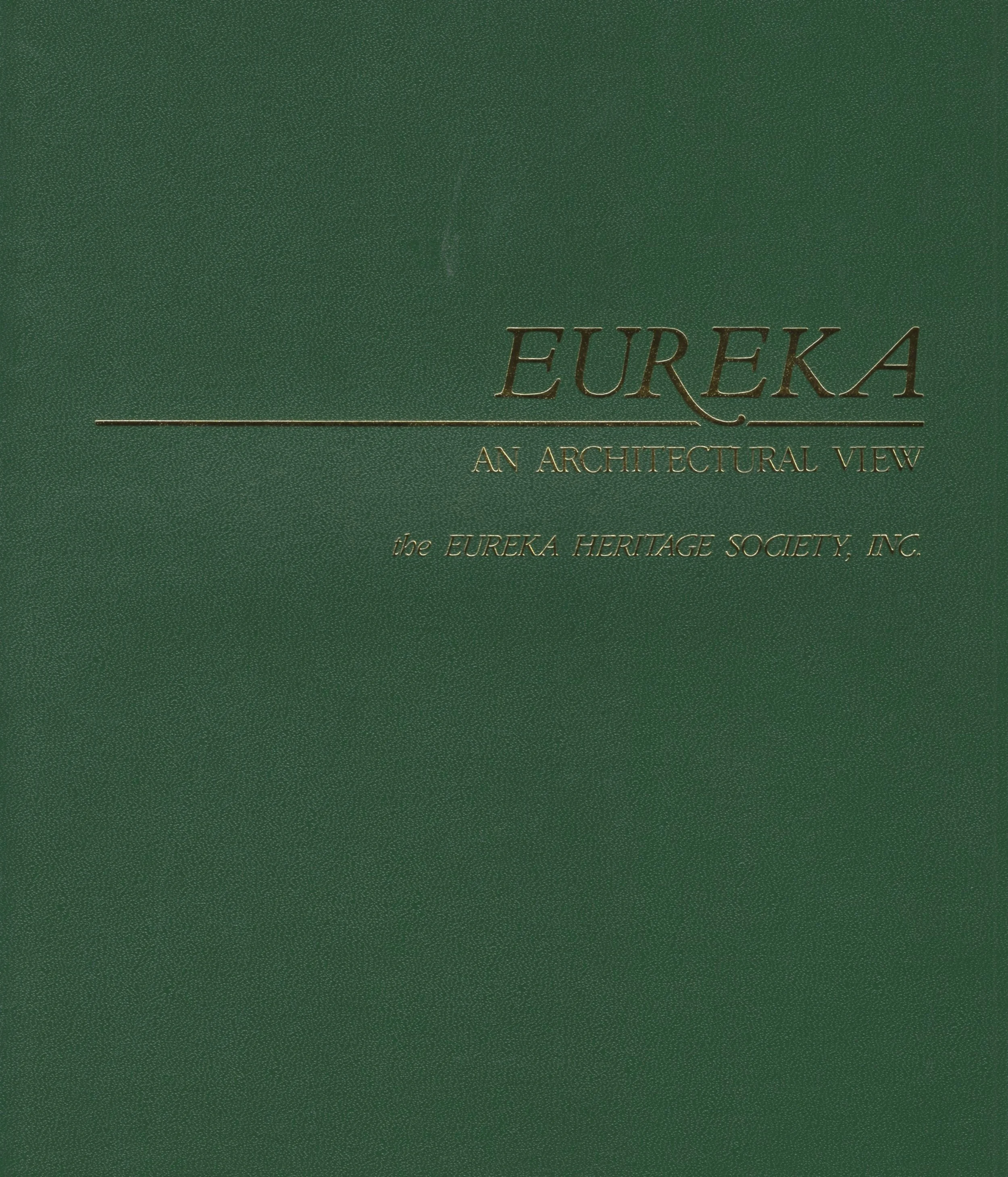The Book of Petrolia: Its History, Land, and People


The Book of Petrolia: Its History, Land, and People
Usually books classified as "history'' are written by scholars, amateur or professional historians, or specialists in certain fields. On the shelves of the Historical Society bookstore is at least one exception: The Book of Petrolia, Its History, Land and People by the Children and Teachers of the Mattole Union School with the Help of the Whole Community. First published in 1962, it was found valuable enough to be republished over 40 years later by the Mattole Valley Historical Society. Research for the book used the few published sources on the subject and personal interviews.
The first chapters deal with the native inhabitants of the region detailing customs, ceremonies, material life and beliefs. Then comes the arrival of white men nation-wide and in the Mattole Valley with its early exploration and settlement in the 1850s. Next we come to the initial interactions of the two groups, some peaceable but mostly not.
Up to here, the story of Mattole is similar to much of Humboldt, but another chapter focuses on what is unique to this area -- the discovery of oil which gave the town of Petrolia its name and changed the valley's economy for decades. Next the expansion of agriculture is followed as is the growth of Petrolia, detailing its businesses, churches, schools and community organizations.
Even the area's natural history is explored including a detailed itemization of local birds and animals both wild and domestic. The final, very compelling chapter is a product of the school's social studies project where the students interviewed community members about their genealogy, occupations and interests showing how the heart of a community is the people living there.
The student researchers were themselves asked for their predictions of what Petrolia would be like in 25 years. After these are assembled, the compilers sum up the book and its subject. "Petrolia, isolated and quiet as it is in this beautiful setting, whatever its future may be, has a rich colorful . . . history and its residents remain conscious of that history and proud of it -- as they fully deserve to feel."






